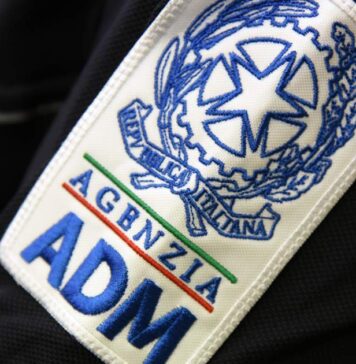The Manager, in the context of the relationship with the Merchant, is required to comply with specific regulatory obligations of considerable importance due to the harmful consequences that the same would face in the event of their failure to comply. The first is to proceed to PAYMENT TRACEABILITY carried out against the Merchant under penalty of ipso jure termination of the contract. On 20.03.2023 the Supreme Court of Cassation, with sentence no. 7966, stated that «in the case of cash payments made by the manager to the legitimate gaming operator, the contract between them is automatically terminated, pursuant to art. 3, paragraph 9 bis, of ln 136 of 2010, without it being possible to hypothesize an evaluation of the contractual behavior of the parties according to diligence and good faith». The Supreme Court in the cit. ruling had the opportunity to clarify that: the limits on the use of cash set by national regulations of Euro 1000 until 2015 and Euro 3000 from 2016 onwards are not effective; if the money withdrawn from the slots is the immediate property of the State, it is clear that the public interests protected by the legislation, i.e. public faith, public order, safety, the health of players, the protection of minors, etc. prevail over any private interest and therefore the possibility of derogation from the regulatory framework must be fundamentally excluded; the violation of this obligation entails the termination not only of the downstream contract but also of the upstream one, signed with the concessionaire as a result of the close operational connection of the concessionaire, at the top of the pyramid, with the other subjects in the supply chain who provide services ancillary to the main one of collecting bets. The art. 3, paragraph 9 bis of Law 136/2010 and art. 24 paragraph 27 bis of Legislative Decree 98/2011 require operators in the sector to use traceable current account money transfer tools
dedicated that allow the so-called CIG, Tender Identification Code, to be affixed, in principle, to each payment.
The second concerns the observance of ANTI-MONEY LAUNDERING RULES provided for by TITLE IV of Legislative Decree 231/2007 as replaced by art. 4, paragraph 1, Legislative Decree 25 May 2017, n. 90 applicable to all gaming service providers including all those who make up the gaming supply chain from the Concessionaire, to «distributors», i.e. private companies which, on a conventional basis, carry out the management of any gaming activity on behalf of the concessionaires; the "operators", i.e. the owners of the commercial establishments in which the gaming activity is carried out. In physical gaming, the aforementioned regulation directly identifies the obligations of customer identification and data retention for distributors and merchants, contracted for whatever reason. In particular, without prejudice to the concessionaire's subjection to general regulations, the distributors and merchants through which the gaming service on the physical network is offered are required to identify and verify the customer's identity as well as acquire and store for for a period of two years also information relating to the date of execution of the gaming operations, their value and the means of payment used. This identification obligation exists every time the customer requests or places bets with the same operator for an amount equal to or greater than 2.000 euros or, regardless of the amount, when there is suspicion of money laundering. The Manager is required, like all other subjects subject to the obligations, to forward without delay a report of suspicious transactions to the Financial Intelligence Unit for Italy (so-called FIU) when, based on the elements acquired, «know, suspect or have reasonable grounds to suspect that money laundering or terrorist financing operations are in progress or have been carried out or attempted or that the funds, regardless of their amount, come from criminal activity» (art. 35 of Legislative Decree 231/2007). The Minister of the Interior, with a decree issued on the proposal of the UIF of 17 February 2011, as integrated by the subsequent decree of 27 April 2012, identified some types of anomalous cases: attempts to enter casinos without documents or with fake tickets; the anomalous closing and opening of gaming accounts (typical of internet gaming); purchases and returns of large quantities of tokens; the movement of significant amounts on gaming accounts, especially if they have remained inactive for a long time; bets of a significant amount or excessively and unjustifiably split up; the frequent use of electronic money instruments, especially non-nominal ones, for overall significant amounts. Any failure to comply with the anti-money laundering rules entails the application of an administrative fine for the Manager ranging from one thousand euros to 10.000 euros. (art. 64 of Legislative Decree 231/2007).
The third and final obligation of the Manager is that of VAT PAYMENT to the operator. In practice, it often happens that the Manager pays individual merchants different sums from time to time and this is clearly done with the aim of building customer loyalty and maintaining commercial relationships over time; the actual remuneration paid to the merchants is documented and proven by the payment receipts or declarations of greater takings, issued and signed by the individual merchants themselves, which unequivocally indicates the greater compensation received by them on the single takings of the period; furthermore, merchants and managers carrying out an activity on behalf of the concessionaire have a remuneration recognized by the concessionaire himself as a participation in the collection. The additional sums paid to the Operator are presumed to be payments for operations relating to the activity carried out by the latter in favor of the Manager, consisting in the provision of the premises in which the gaming machines are installed, in the supervision of the correct functioning of the machines, in the information provided to users, in the organization of activities auxiliary to the bet collection activity and as such subject to the ordinary VAT rate. As sanctioned by the Supreme Court with sentence of 16.06.2021 n. 16951 the VAT exemption referred to in art. 10, first paragraph, n. 6 of Presidential Decree 633 of 1972 applies to the operations of collection of bets carried out with gaming entertainment devices and devices referred to in article 110, paragraph 6, TULPS and, therefore, cannot be extended to operations relating to the activity implemented by the operators in favor of the managers, consisting in making available the premises in which the gaming machines are installed, not intervening in the phase of collection of the bets, entrusted by the concessionaire to the manager, towards whom the operator places a mere auxiliary activity in existence (see Cass., 16 June 2021, n. 16951).
Lawyer Massimiliano Ariano (in the picture)











